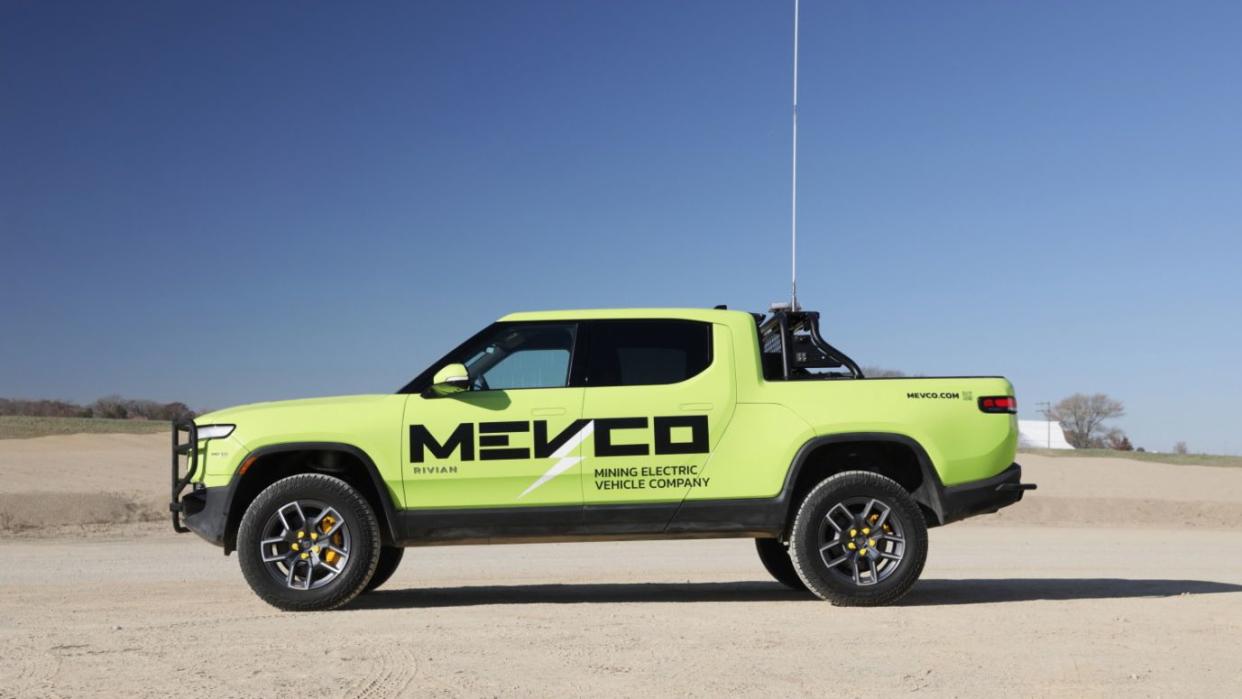Here’s Why Rivian Trucks Are Going Underground

Rivian enters into partnership with MEVCO, or Mining Electric Vehicle Company, to provide R1T electric pickups for the mining industry.
Electric trucks have been in demand in the mining industry due to their zero-emissions nature, making them suitable for work in tunnels, as well as for other technical qualities.
The mining industry has also been using pickups converted to electric power.
If there is one industry besides the last-mile logistics giants that has been interested in electric pickup trucks, it's probably mining. And since this is 2024, we have to clarify that we're not talking about crypto mining.
MEVCO, or Mining Electric Vehicle Company, said it has entered into an exclusive partnership with Rivian to provide EVs for the mining industry, which has been one of the early adopters of EVs even when they haven't been available off-the-shelf.
Electric trucks have been in demand in mining operations for a few reasons. First, the pickups themselves often enter long underground tunnels to deliver personnel to heavy drilling equipment. Gas or diesel truck emissions in such tunnels are problematic, even though specialized venting equipment is used.
Second, these trucks don't really have to cover great distances in a given 24-hour cycle, which means they don't need hundreds of miles of range. Third, mining companies want to reduce their environmental footprints.
A lack of noise is also a plus.
"The shift to electric solutions extends beyond environmental and financial advantages. It is about fostering a safer, healthier environment for mine operators, particularly in subterranean settings where the elimination of tailpipe emissions is paramount," said Matt Cahir, CEO of MEVCO.
Battery-electric pickups are also a good fit for mining operations because such trucks often need to run their headlights for prolonged periods of time, or spend hours in tunnels underground. Both of these demands favor electric power over internal-combustion engines.
These pickup trucks also need reinforced bumpers, special lighting equipment, and communications gear inside, along with power sources for tools. The undersides of pickup trucks used in mining are also often reinforced to cope with abrasive minerals and substances.
Even before electric pickup trucks started arriving on the market en masse, mining companies had recruited specialist conversion companies to turn internal-combustion pickups, such as those based on the Toyota Land Cruiser chassis cab, into battery-electric models.
Mining companies can also easily arrange charging infrastructure, as they rely on dedicated electrical wiring for illumination and equipment underground. So electricity is never in short supply near mining operations.
"The integration of Rivian's technology with MEVCO's proven track record in mining-specific electric vehicles is poised to yield a fleet that exceeds the requirements of the most demanding operators," Cahir added.
MEVCO plans to support mining companies with charging infrastructure as well.
Can EV makers convince many repeat truck buyers to switch to EVs in this decade, or will towing requirements and other considerations still tip the scales toward gas and electric alternatives? Let us know what you think in the comments below.

